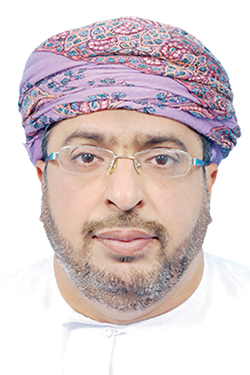

Haider Al Lawati - haiderdawood@hotmail.com - The Royal Decree No (1/2018) was issued on January 1 this year, ratifying the items of the state’s general budget for the fiscal year 2018. This year’s budget coincides with the continuous improvement in global oil prices, which hit the $65 mark, as oil-producing countries hope these prices continue to improve to enable countries to face the annual financial burden.
Figures released by the Ministry of Finance for this budget indicate that the total estimated income for the Sultanate of the current fiscal year 2018 will reach RO 9.5 billion, a slight increase of 3 per cent from the actual projected income for the year 2017, and at $50 a barrel for the current year.
The estimated total public expenditure for the Sultanate for the current year is RO 12.5 billion, an increase of RO 800 million over the estimated expenditure of 2017, or an increase of 7 per cent. The expected deficit is RO 3 billion and 10 per cent of the GDP.
According to this data, oil and gas revenues in the current year’s budget are estimated to reach RO 6.78 billion, representing 70 per cent of the total revenues, whereas the Sultanate is committed to reducing oil production jointly with the decision of Organization of the Petrol Exporting Countries (OPEC) to improve global oil prices.
Meanwhile, non-oil revenues are estimated to reach about RO 2.72 billion, representing 30 per cent of the total revenue, which requires strengthening of the government’s partnership with institutions and companies in the private sector and facilitating the functions and activities of these institutions to attract more domestic and foreign investment. This will help establish more productive projects to enable Omanis to engage in this business as well as increase the annual revenue of non-oil sectors.
As usual, the objective of the Sultanate’s general budget is to maintain the living standards of citizens by continuing to provide the necessary services in the areas of health, education, housing, services and infrastructure, and preserve the achievements of the Sultanate in these sectors. The objective is also to raise human development rates — due to its great importance — and enable Omanis to get these necessary services without any obstacles.
Therefore, RO 3.88 billion was allocated to these sectors in the current budget, which constitutes 31.04 per cent of the total public expenditure.
The current expenditures for ministries and government units are estimated at RO 4.35 billion, accounting for 34.8 per cent of the total expenditure. This includes allowances for employee salaries and benefits amounting to RO 3.3 billion, representing 26.4 per cent of the total public expenditure for the current year.
In other words, more than one-quarter of public expenditure goes to salaries and employee benefits per year, representing 75 per cent of the total current expenditure of ministries and government units.
As for the investment expenditures, work is under way to complete the implementation of a number of strategic development projects supported by the Sultanate’s economic plans in the upcoming stage.
The fiscal budget for the current year aims to enhance the role and contribution of the private sector, which is one of the most important pillars of the Ninth Five-Year Development Plan, and enhance its role in overall economic activities by improving the business environment and the investment climate by removing obstacles that affect the ease of doing business.
The government has already taken a number of effective steps to improve the business environment by developing the legislative framework, issuing laws relevant to increasing the competitiveness of the Sultanate and developing e-government projects in order to improve the performance of government agencies.
These projects aim to enable the private sector to play a pivotal role in the implementation of development plans, and to promote economic diversification through ‘Tanfeedh’ programme to stimulate the country’s promising economic sectors.
Oman Observer is now on the WhatsApp channel. Click here



